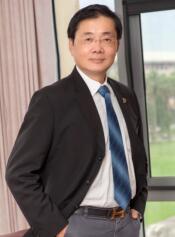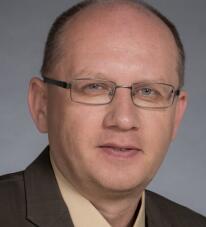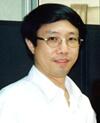Keynote Speakers
 |
Prof. Han-Chieh Chao President, Department of Electrical Engineering, National Dong Hwa University, Halien, Taiwan, China Department of Computer Science and Information Engineering and the Department of Electronic Engineering, National Ilan University, I-Lan, Taiwan, China |
|
Han-Chieh Chao received his M.S. and Ph.D. degrees in Electrical Engineering from Purdue University, West Lafayette, Indiana, in 1989 and 1993, respectively. He is currently a professor with the Department of Electrical Engineering, National Dong Hwa University, where he also serves as president. He is also with the Department of Computer Science and Information Engineering and the Department of Electronic Engineering, National Ilan University, Taiwan; College of Mathematics and Computer Science, Wuhan Polytechnic University, Wuhan, China, and Fujian University of Technology, Fuzhou, China. He was the Director of the Computer Center for Ministry of Education Taiwan from September 2008 to July 2010. His research interests include IPv6, Cross-Layer Design, Cloud Computing, IoT, and 5G Mobile Networks. He has authored or co-authored 4 books and has published about 400 refereed professional research papers. He has completed more than 150 MSEE thesis students and 11 Ph.D. students. Dr. Chao has been invited frequently to give talks at national and international conferences and research organizations. He serves as the Editor-in-Chief for the Institution of Engineering and Technology Networks, the Journal of Internet Technology, the International Journal of Internet Protocol Technology, and the International Journal of Ad Hoc and Ubiquitous Computing. He is a Fellow of IET (IEE) and a Chartered Fellow of the British Computer Society. Due to Dr. Chao’s contribution of suburban ICT education, he has been awarded the US President's Lifetime Achievement Award and International Albert Schweitzer Foundation Human Contribution Award in 2016. Speech title: Deep Learning Platform for B5G Mobile Network Abstract: The 3G and 4G mobile communications had been developed for many years. The 5G mobile communication is scheduled to be launched in 2020. In the future, a wireless network is of various size of cells and different type of communication technologies, forming a special architecture of Heterogeneous Networks (HetNet). Under the complex network architecture, interference and handover problems are critical challenges in access network. How to efficiently manage small cells and to choose an adequate access mechanism for the better quality of service is a vital research issue. Traditional network architecture can no longer support existing network requirements. It is necessary to develop a novel network architecture. Therefore, this keynote speech will share a solution of deep learning-based B5G mobile network which can enhance and improve communication performance through combing some specific technologies. e.g., deep learning, fog computing, cloud computing, cloud radio access network (C-RAN) and fog radio access network (F-RAN). |
|
 |
Prof. Alexander V. Mamishev Department of Electrical Engineering, University of Washington, USA |
|
Alexander V. Mamishev received the equivalent of a B.S.E.E. degree from Kiev Polytechnic Institute, Ukraine, in 1992 and his M.S.E.E from Texas A&M University in 1994. In 1999 he completed a Ph.D. in electrical engineering and computer science at MIT, with a minor in technology management from Harvard Business School and MIT Sloan School of Management. Currently he is a professor and the director of the Sensors, Energy, and Automation Laboratory (SEAL) in the Department of Electrical Engineering, University of Washington, Seattle. Mamishev is author on more than 120 technical publications. He served as an associate editor for the IEEE Transactions on Dielectrics and Electrical Insulation. He is a recipient of the NSF CAREER Award, the IEEE Outstanding Branch Advisor Award and the UW EE Outstanding Research Advisor Award. His research interests include sensor design and integration, robotics, and energy technology applications. Speech title: Sensor Networks for Air Quality Measurements Abstract: About 90% of the world’s population lives in places where air quality exceeds exposure guideline limits. Each year, three million deaths are a result of exposure to ambient air pollution, and 4.3 million deaths are a result of household exposure to smoke from dirty cookstoves and fuels. The improved exposure assessment tools are important to the individuals sensitive to air quality or for use in hazardous occupational environments. Two examples of affected populations include asthma patients and workers in various hazardous industries. The presentation discusses scientific value, challenges, and implementation strategies of a distributed monitoring network consisting of real-time, low-cost, wearable air quality sensors. Optical particle counters are compared to particulate matter and volatile organic compound sensors. The tradeoffs between, accuracy, energy-efficiency, cost, and form factors and their influence on the adoption of latest technological solutions will be discussed. The health impact will be demonstrated through improved exposure assessment and development of novel intervention strategies based on crowdsourced pollution mapping using real-time measurements as well as on formal focused epidemiological studies. |
|
 |
Prof. Dr. Chidchanok Lursinsap Department of Mathematics and Computer Science, Faculty of Science, Chulalongkorn University, Bangkok 10330, Thailand |
|
CHIDCHANOK LURSINSAP received the B.Eng.degree (Hons.) in computer engineering from Chulalongkorn University, Bangkok, Thailand, in 1978, and the M.S. and Ph.D. degrees in computer science from the University of Illinois at Urbana–Champaign, Urbana, IL, USA, in 1982 and 1986, respectively. He was a Lecturer with the Department of Computer Engineering, Chulalongkorn University, in 1979. In 1986, he was a Visiting Assistant Professor with the Department of Computer Science, University of Illinois at Urbana–Champaign. From 1987 to 1996, he was with the Center for Advanced Computer Studies, University of Louisiana at Lafayette, as an Assistant and an Associate Professor. After that, he came back to Thailand to establish the Ph.D. Program in computer science with Chulalongkorn University and he became a Full Professor. His major research interests include neural learning and its applications to other science and engineering areas. Speech title: How Fast can a neural network learn in various constraints ? Abstract: One of the challenging problems in training a neural network is how to train the network so that the number of epochs is approximately a linear time in terms of number of training patterns and the percent of testing accuracy is still in the acceptable range. In this talk, we will discuss how to achieve this bound under the constraints of data overflow, streaming, time -space complexity preservation, and other issues such as plasticity of the network. |
|